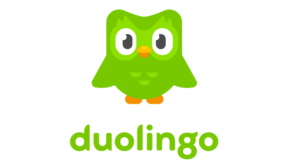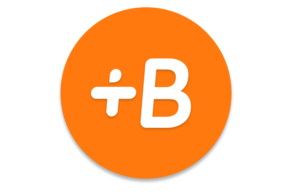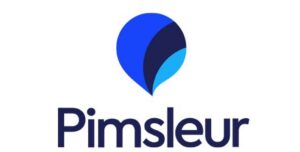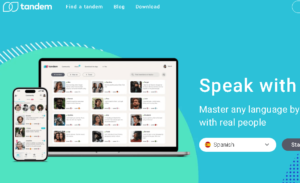In today’s interconnected world, the ability to speak multiple languages has never been more valuable. Whether you want to enhance your travel experiences, advance your career, or simply challenge your cognitive abilities, language learning is a fantastic endeavor. Fortunately, technology has made language acquisition more accessible, with many language learning apps available. This article’ll explore the best language-learning apps to help you embark on your multilingual journey.
How Language Learning Apps Work
Language learning apps leverage technology to provide users with a structured and interactive approach to acquiring new languages. Here’s how they typically work:
- Content Delivery: Language learning apps offer a wide range of content, including lessons, vocabulary, grammar explanations, and audio recordings. These materials are typically organized into courses, each focusing on a specific language or aspect of language learning.
- Interactive Exercises: Apps engage users with various interactive exercises, such as quizzes, flashcards, speaking and listening exercises, and writing tasks. These exercises are designed to reinforce vocabulary, grammar rules, and pronunciation.
- Progress Tracking: Most language learning apps track your progress and performance. They use algorithms to adapt the difficulty of exercises based on your performance, ensuring that you receive appropriate challenges and support.
- Gamification: Many apps incorporate gamification elements, such as points, levels, and rewards, to make learning more engaging and enjoyable. Gamification encourages users to stay motivated and maintain a consistent learning routine.
- Audio and Visual Resources: Language apps often include audio recordings of native speakers, video lessons, and visual aids to help users improve their listening and speaking skills. These resources expose learners to authentic language use and pronunciation.
- Community and Social Features: Some apps include community features that allow users to interact with native speakers or fellow learners. Language exchange options, chat rooms, and discussion boards create opportunities for language practice and cultural exchange.
Why Language Learning Apps Are Important
Language learning apps have gained immense popularity and importance for several compelling reasons:
-
- Accessibility: Language learning apps are accessible to anyone with a smartphone or a computer. This accessibility means that people from all walks of life, regardless of their location or financial resources, can embark on their language-learning journey.
- Convenience: Apps provide the flexibility to learn at your own pace and on your schedule. You can squeeze in a quick lesson during a lunch break or immerse yourself in language practice for hours—it’s up to you.
- Personalization: Many apps use artificial intelligence and machine learning algorithms to tailor the learning experience to each individual’s needs and preferences. This personalization ensures that learners receive content and exercises that match their skill level and learning style.
- Cost-Effective: Compared to traditional language courses or immersion programs, language learning apps are often more affordable or even free, making language learning accessible to a broader audience.
- Lifelong Learning: Language learning apps support lifelong learning by making language acquisition accessible to people of all ages. Whether you’re a child learning your first language or an adult picking up a new one, these apps cater to diverse age groups.
Best Language Learning Apps
1: Duolingo

Duolingo has earned its spot as one of the most popular language learning apps for good reason. This app offers courses in over 30 languages and employs a gamified approach to make learning fun and engaging. Duolingo’s bite-sized lessons are perfect for learners of all ages, from kids to adults. The app also features a variety of exercises, including speaking, listening, reading, and writing, to ensure a well-rounded language learning experience.
2: Rosetta Stone

Rosetta Stone is a time-tested language learning program that has successfully transitioned into the digital age. Known for its immersive teaching method, Rosetta Stone helps learners develop their language skills by surrounding them with the target language. With lessons that focus on pronunciation, vocabulary, and grammar, this app is an excellent choice for those who prefer a structured and comprehensive approach to language learning.
3: Babbel

If your goal is to acquire practical language skills for everyday communication quickly, Babbel is the app for you. Babbel offers courses in 14 languages and is designed to teach you conversational skills that you can use immediately. The app’s focus on real-life dialogues and situations ensures that you’ll be able to engage in meaningful conversations in your target language.
4: Memrise

For those who want to build a robust vocabulary in their chosen language, Memrise is a fantastic option. Memrise uses spaced repetition and mnemonic techniques to help you memorize and retain words and phrases effectively. With a wide range of user-generated content, you can find courses for virtually any language you want to learn.
5: Pimsleur

Pimsleur is an audio-focused language-learning app that strongly emphasizes pronunciation and listening skills. The app offers courses in over 50 languages and uses a unique “spaced repetition” technique to reinforce your memory of vocabulary and phrases. Pimsleur’s approach is particularly effective for auditory learners or those who want to improve their speaking skills.
6: Tandem

Tandem takes a different approach to language learning by connecting you with native speakers for language exchange. It’s not just an app for learning; it’s a platform for making friends worldwide. You can chat, voice call, or video call with your language partners, providing an immersive and interactive way to practice your language skills.
7: Drops

Drops is a visually appealing language learning app that focuses on vocabulary acquisition. With its simple and elegant design, Drops offers quick, interactive lessons that are perfect for busy individuals. The app uses mnemonic images and audio to reinforce your memory, making it an excellent choice for visual learners.
8: Busuu

Busuu combines language learning with a strong sense of community. You can interact with native speakers and get feedback on your exercises and writing. Experts design Busuu’s courses and cover a wide range of languages, making it a great choice for learners who appreciate social interaction as part of their language-learning journey.
9: HelloTalk

HelloTalk is a unique language learning app that doubles as a social network for language enthusiasts. You can connect with native speakers, chat with them through text or voice messages, and even get corrections on your language use. This app fosters a supportive community of language learners, making learning and practicing enjoyable.
10: FluentU

FluentU takes a different approach by immersing you in real-world videos, such as music videos, movie trailers, news clips, and more. You’ll learn from authentic content with interactive subtitles, quizzes, and vocabulary lessons. It’s an ideal choice for those who want to understand and communicate in the language as it’s spoken in real life.
Conclusion
The world of language learning apps has never been more diverse and exciting. Whether you prefer gamification, immersive experiences, vocabulary drills, or social interaction, there’s an app tailored to your needs. To make the most of your language learning journey, consider your goals, learning style, and the language you want to master.
Remember that consistency and practice are key to language acquisition. Whichever app you choose, dedicate time each day to hone your skills. The most effective language learners embrace the journey, make mistakes, and continuously strive to improve their linguistic abilities. So, pick an app that resonates with you, and embark on your multilingual adventure today!









+ There are no comments
Add yours